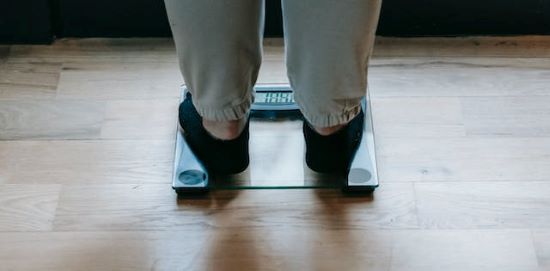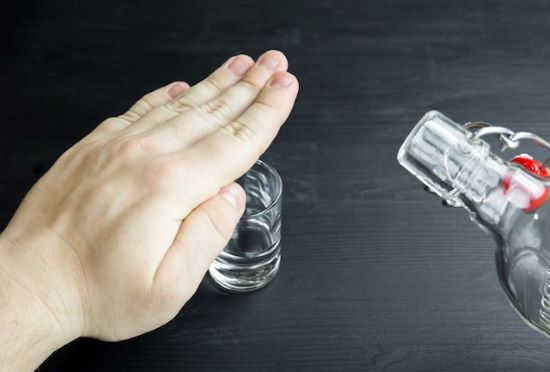There are many factors which can affect your fertility. In this article, I focus in on the top 8 things which are within your control. Every aspect of these items can be changed and adapted to you and your lifestyle, and I hope, armed with this extra knowledge, you can make some changes towards a healthier and more fertile future!

#1: Diet
What we put into ourselves hugely affects our bodies and all the systems which work inside of us. This includes our reproductive system, affecting our fertility.
For women trying to become pregnant folic acid, vitamin b12, omega 3 fatty acids, and a healthy Mediterranean diet were all linked to a positive effect on fertility.

Consuming a diet that’s high in ultra-processed foods (UPF’s) may have a negative impact on fertility. Many UPF’s are high in salt, sugar and unhealthy fats which may contribute towards inflammation and hormonal imbalance if consumed in large quantities.
Studies of men have found that semen quality improves with healthy diets (as described above), while the opposite has been linked with diets high in saturated or trans fat. Importantly, semen quality is not a perfect predictor of fertility, and most studies did not actually examine the impact of paternal diet on the rate of successful pregnancies.
For couples receiving assisted reproductive technologies, women may be more likely to conceive with folic acid supplements or a diet high in isoflavones (plant-based estrogens with antioxidant activity), while male fertility may be aided by antioxidants.
I think it would also be important to mention here that weight can play a big part in fertility.

Research has discovered a connection between obesity and infertility in women. Even being slightly overweight may affect fertility. And it’s not just women who need to watch the scale. Obesity can also negatively impact male fertility, leading to lower sperm counts.
Just as being overweight can lead to fertility problems, weighing too little or not eating enough can also affect your reproductive potential.
Being significantly underweight can cause amenorrhea, and no menstrual cycle means no ovulation. Without ovulation, you can’t get pregnant.
So to optimise your chances of conceiving, eating a balanced, Mediterranean diet, along with folic acid supplement (if you are female) is important and if you are overweight or underweight, it would be a good idea to start taking some steps to either reduce or put on some weight. Depending on where you are on the scales, it would be a good idea to consult your doctor first.
#2: Stress
Even though infertility is very stressful, the research hasn’t yet proved that stress is a cause of infertility, however there are studies which show that stress can be linked to lowered fertility.
Being very stressed for a long time may make it harder to conceive. But trying for a baby can also be stressful in itself. In general, it makes sense to take steps to reduce stress while you’re trying for a baby, if only for your own peace of mind.
For women, stress can affect the part of your brain (the hypothalamus) that regulates your hormones, which in turn regulate your menstrual cycle. If stress takes a toll on your body, then it could mean you ovulate later than usual, or not at all (stress-induced anovulation).

Stress can also affect male fertility.
Many studies looking at the effects of stress have shown that stress is associated with reduced paternity and abnormal semen parameters. Enough scientific evidence exists to suggest that psychological stress could severely affect the production of sperm, mainly as a result of varying testosterone secretion.
Taking steps to reduce your stress could be key for enhancing your conception chances, as well as your overall health, and there are lots of ways to do this. Time outside, exercise, time with loved ones, reducing your to-do list or giving yourself a time out once in a while.
Trying to conceive can be an extremely anxious and stressful time so it’s important to recognise that and find ways to minimise it.
#3: Alcohol
Alcohol is cemented in a lot of societies worldwide and for a psychoactive toxin that seems strange, however it has been around for such a long time, it has become normalised.
Alcohol can cause a lot of short and long term issues ranging from accidents and injuries to increased risk of heart disease, liver disease, breast cancer, stroke and more.
It can also affect fertility.
For women, it can change your levels of oestrogen, reduce the number of eggs which you have left and cause changes to ovulation, which can reduce your chances of getting pregnant.

If you have polycystic ovary syndrome (PCOS), reducing alcohol is also a good idea. This is because drinking too much alcohol can cause you to put on weight or effect your blood sugar levels. Both of these can worsen symptoms of PCOS.
Alcohol can also affect sperm.
It does this by reducing testosterone. This can then affect how your body functions, including your fertility. Having less testosterone can reduce the quality and quantity of your sperm. The positive thing is that improvements in sperm happen quite quickly after you reduce your alcohol intake. It takes 3 months for your sperm to regenerate, which is great news.
We also know that if you regularly drink alcohol in the months before your partner becomes pregnant, your baby has a higher risk of health complications. This includes the chance of them developing a cleft lip.
Alcohol and IVF
A study published in the journal Obstetrics and Gynaecology found that women beginning an IVF cycle who drank four or more drinks per week were 16 percent less likely to have a live birth than those who drank less than that or not at all. When both partners drank at least four drinks a week, the rate of live birth was reduced even further, down to a 21 percent less chance of having a live birth when compared to couples who didn’t drink or drank less than four drinks per week.
If you are trying to conceive then the ideal is to cut out drinking completely. If you don’t plan on doing that then reduce what you are drinking. Current government recommendations for both women and men is no more than 14 units per week, although it is also no known that there is no safe level of alcohol.
Try the alco free options of which there are so many nowadays.
My favourites are the alco free leffe beer, and alco free martini with tonic for a more fancy tipple.
Or, cut out alcohol completely. I would not necessarily suggest doing dry January, not because it’s not a good idea but New Year’s resolutions often fail, so try it on a different month to give yourself a better chance to make it sustainable.
If you feel you have a problem or need help to do so, then talk to your doctor, or one of the many charities or support groups which are out there.
#4: Smoking
We all know how bad smoking is, and this is also true for fertility of both women and men.
Here are a few facts to show you why.
The chemicals in cigarette smoke, like nicotine, polycyclic hydrocarbons, and carbon monoxide, are known to accelerate your body’s natural speed of losing eggs. The same chemicals also hurt the quality of the remaining eggs. It has been proven in many studies that women who smoke tend to have menopause earlier than women who don’t smoke. It negatively affects hormone production and can lead to a shorter cycle.

The chemicals in tobacco are very detrimental to a man’s fertility. Studies have shown that it reduces the motility of the sperm, their ability to fertilise the eggs and their morphology.
Once you stop smoking, the ill effects on your reproductive health begin to reverse.
If you need help to quit smoking, there are a lot of resources available for you. Talk to your doctor if you find quitting smoking especially difficult.



